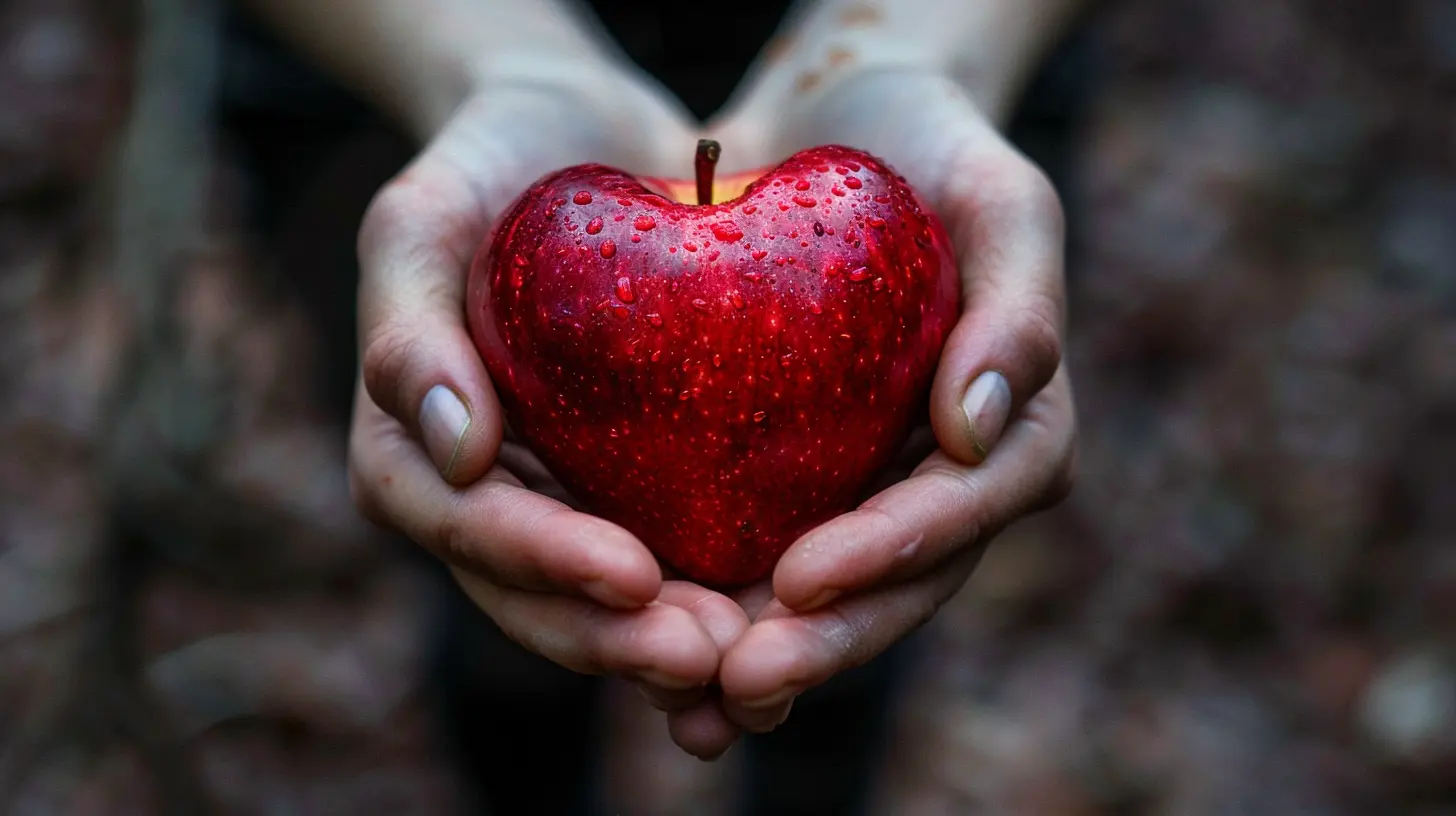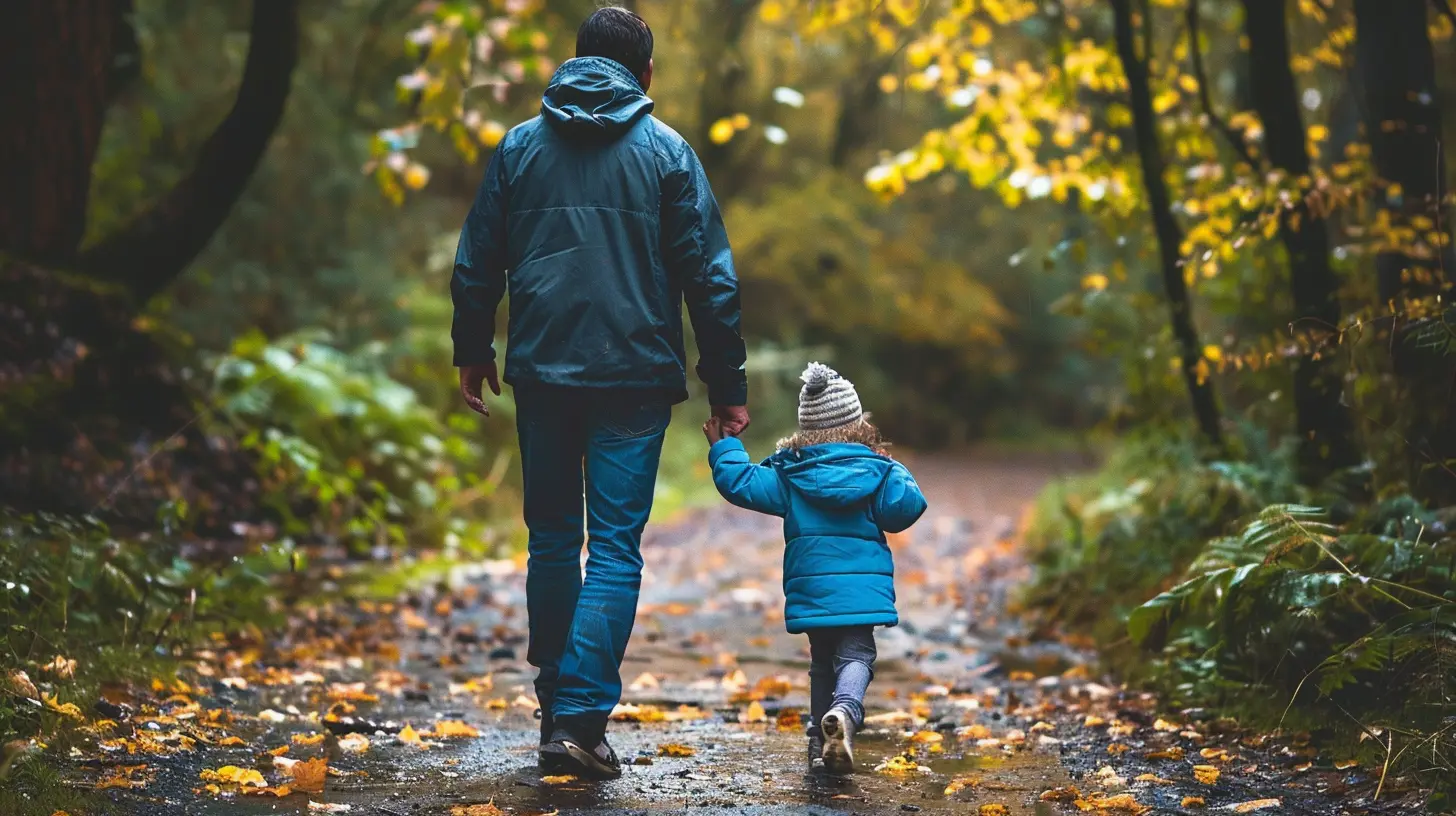Helping Your Teen Develop Healthy Relationships
24 November 2025
Ah, the teen years. That magical phase where everything is dramatic, hormones are basically running a reality TV show, and suddenly your sweet little child is texting nonstop, talking about crushes, and navigating friendships that make Game of Thrones look chill.
But here’s the kicker: helping your teen develop healthy relationships isn’t just about monitoring who they date or hang out with. It’s about giving them the tools to build connections that are respectful, supportive, and real—without losing their identity in the process.
So, buckle up. We're diving into the teenage relationship rollercoaster—friendships, dating, digital drama, and everything in between. And yes, we’ll keep it bold, brutally honest, and just sassy enough to keep you wide-eyed and ready.
Why Relationships Matter More Than Ever
Before we go full throttle into the how-tos, let’s talk about the why. Relationships during adolescence are a big freakin’ deal. Teens are figuring out who they are, and relationships become the mirror they use to see themselves.They’re learning—
- How to communicate.
- What boundaries look like.
- What love really means (spoiler: it’s not just hearts on Snapchat).
- How to deal with conflict without blowing stuff up.
Unhealthy relationships at this stage? They can lead to some heavy stuff—low self-esteem, anxiety, emotional wounds, even abusive patterns in adulthood. No pressure, right?
But here’s the tea: with your guidance (and a bit of strategic parenting), your teen can learn to navigate relationships like a boss.
Start By Being The Role Model They Secretly Watch
Yep. Even if they roll their eyes at you 95% of the time, your teen is watching your behavior like it’s Netflix.If you treat your partner with kindness, talk through conflicts instead of yelling, and maintain friendships rooted in honesty and respect—they notice. They may pretend they don’t, but trust me, those moments imprint harder than their TikTok feed.
So, first tip: model the kind of relationships you hope they’ll have. And if your relationships have been messy? Acknowledge that too. Being real about your mistakes shows them that growth is possible.
Don’t Just Talk—Actually Listen (Without Judgey Eyes)
Okay, real talk: teens hate lectures. You start with “When I was your age…” and their brain instantly hits mute.Want them to open up? Listen. Like, really listen. No interruptions. No judging. No jumping into “I told you so” territory.
Let them vent about their BFF drama. Validate how they feel—even if it sounds like middle school nonsense to you. Because to them? It’s everything.
And when they ask for advice (trust me, eventually they will), offer it gently. Don’t bulldoze their feelings with all-knowing adult wisdom. Instead, say things like:
- “That sounds like it really hurt. Have you told them how you feel?”
- “What do you think you want to do about it?”
- “I’m here for you, no matter what.”
Boom. Instant trust upgrade.
Talk Boundaries Like It’s A Superpower (Because It Is)
Here’s the thing: teens often think love equals unlimited access. But healthy relationships are built on boundaries. And boundaries aren’t walls—they’re like emotional property lines. Everyone needs ‘em.Help your teen understand that:
- It’s okay to say no.
- Alone time is essential.
- They don’t owe anyone emotional labor just because they’re dating or friends.
- Mutual respect should be non-negotiable.
Make it real with examples:
- “If someone keeps texting you 24/7 and gets mad when you don’t reply right away, that’s a red flag.”
- “If your friend pressures you into stuff you're uncomfortable with—it’s totally okay to distance yourself.”
The earlier they learn this, the less likely they are to end up in relationships that drain their soul.
Let’s Get Real About Red Flags
Ah, the red flags. You know them. I know them. But does your teen? Probably not.They might think jealousy is cute. Or that it’s “romantic” if someone gets angry when they hang out with others. Yikes.
Sit down with your teen and go over the not-so-sweet signs of toxic behavior:
- Constant jealousy or possessiveness.
- Love bombing followed by emotional withdrawal (aka emotional whiplash).
- Guilt-tripping or manipulating.
- Disrespecting boundaries.
- Gaslighting. (Yes, teens experience it too—especially online.)
And hey, don’t make it a doomsday lecture. Just sprinkle it into casual convos: while watching a show together, in the car, over fries at 11 PM. Let it feel natural.
The goal? Teach them to spot the BS before it becomes a full-blown circus.
The Digital Relationship Minefield
Can we talk about tech for a sec? Because teen relationships today aren’t just happening in hallways—they’re happening through texts, snaps, DMs, and emojis. And guess what? The rules are blurry AF.Here’s what you need to discuss:
- Digital consent: Just like physical boundaries, your teen should know it’s not okay to share or ask for nudes. Ever. Full stop.
- Screenshots last forever: Drama doesn’t disappear just because the snap did. Help them think twice before hitting send.
- Relationships aren’t 24/7: They don’t need to reply instantly or FaceTime every night to prove their love.
- Online jealousy: Who liked whose post shouldn’t spark an argument.
Teens need to know how to be emotionally safe both IRL and online—and, plot twist, you’re the perfect person to teach them.
Encourage All Kinds of Relationships—Not Just Romantic Ones
Romance gets all the spotlight, but friendships? They’re the real MVPs of the teen years.Encourage them to cultivate relationships with people who uplift them, make them laugh until they snort, and support their growth. Platonic love is powerful, okay?
And honestly, helping them build a strong crew means they’re more likely to walk away from toxic romantic relationships later. Why? Because they know what good love feels like already.
Dating? Let’s Talk Guidelines Without Sounding Like A Warden
So, your teen is dating now? First of all—breathe. It’s totally normal. Secondly? It’s not about control, it’s about connection.Instead of forbidding them from seeing someone (instant rebellion, anyone?), do this:
- Set clear, age-appropriate guidelines. (Like curfews or group hangouts for younger teens.)
- Talk about emotional and physical safety without making it awkward.
- Ask how the relationship makes them feel rather than just grilling them about the person.
- Keep the door open—literally and emotionally. If they know they can talk to you without it turning into the Spanish Inquisition, they’ll keep coming back.
Support Their Self-Worth Like It’s Your Full-Time Job
At the root of every healthy relationship is…you guessed it—self-worth.Teens who love and respect themselves don’t tolerate crappy treatment. They walk away. They know their value.
So hype up your kid like you’re their personal PR agent:
- Compliment their character, not just their looks.
- Celebrate their hobbies and talents.
- Help them set goals and feel proud of who they are becoming.
Because teens who feel good about themselves are less likely to seek validation through unhealthy relationships.
When Things Go South: Be The Safety Net
Let’s face it—heartbreak happens. Friendships fall apart. First loves fade. And sometimes, relationships cross lines they shouldn’t.So when things go south, and they will, be the soft place to land. Don't say, “I told you so.” Don’t minimize their pain with, “You’ll find someone else.”
Say:
- “I’m here for you.”
- “It’s okay to feel all of this.”
- “You’re not alone, and you’re going to be okay.”
Your job isn’t to fix every emotion—it’s to sit with them through it. That’s the stuff that strengthens your bond like nothing else.
Final Sass: You’ve Got This, Parent Warrior
Helping your teen develop healthy relationships is messy, amazing, terrifying, and heartwarming all rolled into one. Will you get it perfect? Hell no. But parenting during the teen years isn’t about perfection—it’s about presence, patience, and a whole lot of late-night talks.Be their guide, not their boss. Show them respect, and they’ll return it (eventually, we promise). And above all? Remind them they deserve relationships that feel safe, supportive, and real.
Because love—real love—should never feel like a battlefield.
all images in this post were generated using AI tools
Category:
Raising TeensAuthor:

Austin Wilcox
Discussion
rate this article
1 comments
Logan Franco
Encouraging open communication and trust is crucial in helping teens navigate relationships. Emphasize the importance of respect, empathy, and boundaries. As parents, modeling healthy interactions can provide valuable lessons, empowering them to build connections that are supportive, fulfilling, and resilient throughout their lives.
November 26, 2025 at 4:43 PM

Austin Wilcox
Absolutely! Open communication and modeling respect and empathy are key to guiding teens in building healthy, resilient relationships. Thank you for highlighting this important aspect!


